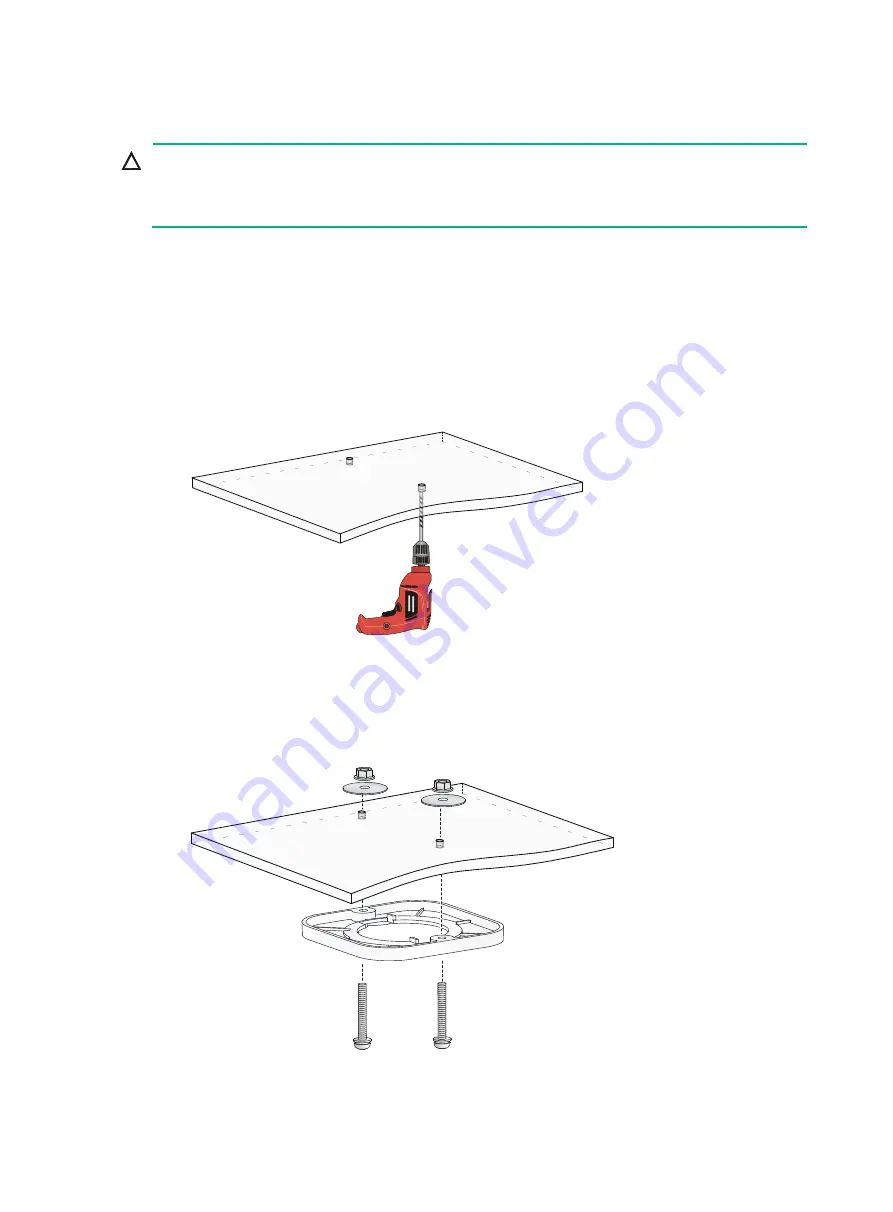
7
Mounting the AP on a ceiling
CAUTION:
The ceiling for installing the AP must be less than 18 mm (0.71 in) in thickness, and can bear a load
of 5 kg (11.02 lb). If the ceiling is not strong enough, use boards to reinforce the ceiling as a best
practice.
To mount the AP on a ceiling:
1.
Set the alignment pegs on the AP bracket into the alignment holes in the AP rear. Use the M4
× 7 screw to secure the AP bracket to the AP through the installation hole in the middle of the
AP bracket.
2.
Mark the installation holes on the ceiling by using the wall/ceiling bracket.
3.
Drill two holes with a diameter of 5 mm (0.20 in) in the marked positions, as shown in
.
Figure 12 Drilling holes in the ceiling
4.
Thread the pan-head screws through the installation holes in the wall/ceiling bracket and into
holes in the ceiling. Fasten washers and nuts at the other side of the ceiling to attach the
wall/ceiling bracket to the ceiling, as shown in
Figure 13 Attaching the wall/ceiling bracket to the ceiling
5.
Align the AP with the wall/ceiling bracket and rotate the AP clockwise until it snaps into place,
as shown in
. For more information, see "
."


































